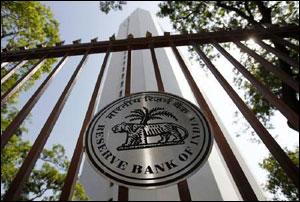- Reserve Bank of India lens on mutual fund (MF), insurance, gold coin sale by branch’s non-sales staff
- Commission income from selling insurance and MF banks increased
- Incentive process to be streamlined
- Mis-selling leading to exposure banks to reputational risk
Online portal Cobrapost’s sting operations, which alleged three private sector banks were violating know your customer (KYC) and anti money-laundering norms, are turning out to be a tip of the proverbial iceberg.
The Reserve Bank of India (RBI), which is investigating the allegations, has found the root cause is the perverse incentive schemes that banks offer to employees, which lure them to sell insurance and mutual fund products.
 As a result, the probe, which started with three banks, has now been extended to 34 major banks in India which sell such products. “It is not that only three banks indulge in such practice. It is likely that such practice is prevalent in other banks, too,” said a source.
As a result, the probe, which started with three banks, has now been extended to 34 major banks in India which sell such products. “It is not that only three banks indulge in such practice. It is likely that such practice is prevalent in other banks, too,” said a source.
RBI was always wary about such distribution tie-ups, as an arm’s length principle was not always maintained by banks and their partners.
The investigations also revealed that insurance and mutual fund agents were found sitting in bank branches to sell such products, giving the wrong impression to customers that the agents are the bank’s staff. This also exposes banks to reputational risk.
The commission income from selling insurance and mutual fund products by banks has also increased in the recent period, the central bank has noted.
It also observed that the insurance or mutual fund house decides the targets for bank employees and pay them the incentives directly.
RBI has questioned the banks on this practice. Sources indicate incentives will be streamlined in which the insurance/mutual fund firm will pay the fee to the bank, which will later pass it to the employees.
“RBI has questioned how non-sales staffs, involved on operational matters like a person who is in the teller counter, can have a target. Lure of achieving target leads to not doing the basic duty,” said a senior banker.
RBI is likely to issue norms banning sales incentives to operational staff of the banks. Similarly, target on selling gold coins by operational staff will also be abolished.
However, violation of anti money-laundering norms has not been found. “Money laundering has a criminal connotation. It was not found in the initial investigation that bank employees are indulging in such activities,” said banking industry sources.
India’s three largest private banks, ICICI, HDFC and Axis, were named by Cobrapost last month for allegedly indulging in money-laundering and violating KYC norms.
The portal’s sting operation alleged some bank officials had offered to launder unaccounted money by investing in insurance schemes. These three banks have also commissioned forensic audit and have suspended the staff allegedly involved in violating the norms. Banks in India account for a significant share in the distribution of products in the life insurance segment.
While RBI acknowledged banks selling insurance product offer several benefits such as building better relationship with customers and helping insurers to reach to a vast majority of the population through branch network, it said there were many instances of mis-selling of insurance products through this channel.











